Miniscule in numbers, Sikhs stand up against forces of hate in Rajasthan
Amid the fervour of the Rajasthan Assembly elections, the Sikh community of Tijara stands at a crossroads following the incendiary remarks made by BJP leader Sandeep Dayama. The offensive comments, targeting the revered institutions of the Sikh and Muslim communities, have sparked widespread outrage. WSN Special Correspondent Kamaljeet Singh visits the constituency days prior to the polls to file this report.
![Amid the fervour of the Rajasthan Assembly elections, the Sikh community of Tijara stands at a crossroads following the incendiary remarks made by BJP leader Sandeep Dayama. The offensive comments, targeting the revered institutions of the Sikh and Muslim communities, have sparked widespread outrage. WSN Special Correspondent Kamaljeet Singh visits the constituency days prior to the polls to file this report. With Sikhs constituting less than 1 million in Rajashtan and accounting for 1.27 percent of the state’s population, a […]](https://www.theworldsikhnews.com/wp-content/uploads/2023/11/Sandeep-daymal-speech-360x267.jpg)
With Sikhs constituting less than 1 million in Rajashtan and accounting for 1.27 percent of the state’s population, a united vote for or against a political party is the only way for their voice to be heard. Otherwise, history will be repeated. It can take months and years for the major political parties to even appoint members of the State Minorities Commission.
This election emerges as a pivotal moment for the Sikh community to galvanize and cultivate robust leadership that reflects their ethos and aspirations, transcending beyond mere tokenism to active participation in the state’s democratic processes. It’s a clarion call for Sikhs and other minorities to rise and lead, ensuring that their voices are not just heard but are influential in shaping the future of Rajasthan.
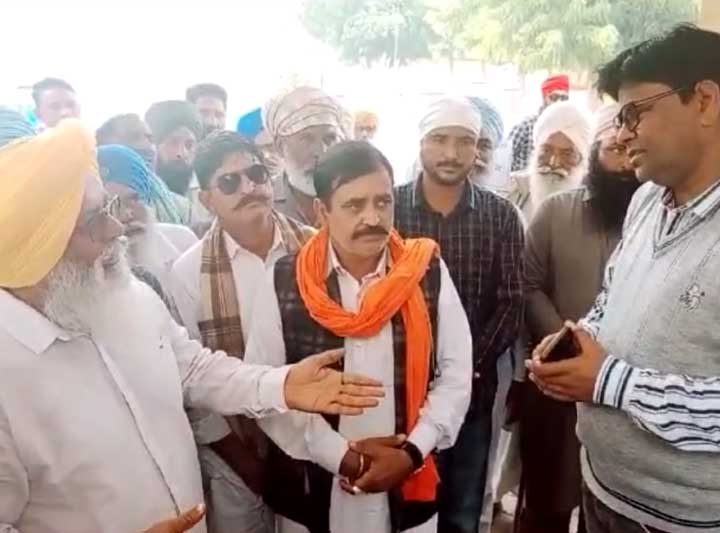
The repercussions in the Sikh and Muslim-dominated Tijara constituency are palpable as the Sikh candidate, Nirmal Singh Khalsa of the Aam Aadmi Pariwartan Party, challenges the status quo. The Congress party, the SGPC, and Sikhs across the country have condemned the hate speech of the BJP leader leading to his expulsion from the primary membership of the party.
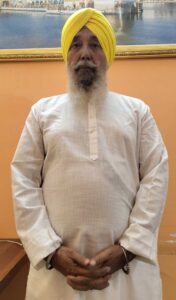 Nirmal Singh Khalsa, in a passionate rebuke, has dismissed Dayama’s statements as cowardly and derogatory, especially towards the Sikh Gurdwaras in Tijara, Rajasthan. “Politicians like Sandeep Dayama are like a stain on the political fabric. We aim to eradicate such divisive politics that tarnish the integrity of our community,” Khalsa affirmed, calling upon the Sikh community to stand united against such blatant attacks.
Nirmal Singh Khalsa, in a passionate rebuke, has dismissed Dayama’s statements as cowardly and derogatory, especially towards the Sikh Gurdwaras in Tijara, Rajasthan. “Politicians like Sandeep Dayama are like a stain on the political fabric. We aim to eradicate such divisive politics that tarnish the integrity of our community,” Khalsa affirmed, calling upon the Sikh community to stand united against such blatant attacks.
Despite Dayama’s public apology, his photo op in Gurdwaras seeking pardon failed to resonate with the community in the constituency and elsewhere. Khalsa said, “The Sikh community doesn’t accept Dayama’s apology. His dual stance, asking forgiveness from Sikhs while targeting Muslims, is unacceptable to us.”
Waryam Singh, an Alwar-based Sikh activist, stresses the same,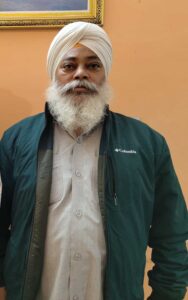 condemning the duality of Dayama’s actions. He insists that an apology at Akal Takht, the supreme religious authority of Sikhs, is essential, as mere words are not enough to heal the wounds inflicted.
condemning the duality of Dayama’s actions. He insists that an apology at Akal Takht, the supreme religious authority of Sikhs, is essential, as mere words are not enough to heal the wounds inflicted.
Ganganagar which has a sizeable population of Sikhs is the hub of Sikh social, religious, and political activity. Many Sikh bodies there continue to uphold Sikh rights at all levels.
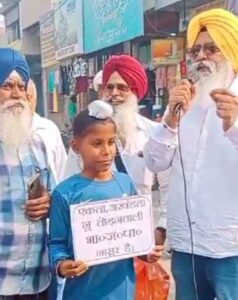 Tejinder Pal Singh Timma, Convenor of the Sikh Advisory Board from Ganganagar, while speaking to this reporter said, “We are campaigning against the Bharatiya Janata Party and are appealing to the electorate in general and the Sikhs in particular to vote against the Bharatiya Janata Party.
Tejinder Pal Singh Timma, Convenor of the Sikh Advisory Board from Ganganagar, while speaking to this reporter said, “We are campaigning against the Bharatiya Janata Party and are appealing to the electorate in general and the Sikhs in particular to vote against the Bharatiya Janata Party.
Speaking on the Tijara issue, he said, “We have submitted our memorandum to the government demanding action not only against the perpetrator but also against the candidate Baba Balak Nath Yogi and UP Chief Minister Adityanath Yogi who clapped when Sandeep Dayama was spewing venom against Sikh Gurdwaras and Muslim Masjids.”
The Sikh youth of Alwar share a unanimous sentiment, vowing to support Khalsa and reject Dayama’s divisive rhetoric. They see the defeat of the BJP’s candidate as a win for their community’s dignity and values.
This election is not merely about a seat in the assembly; it is about challenging the agents of hatred and standing up for minority rights. The Sikligar Sikhs, sizeable in number in Rajasthan, though scattered across the state, while speaking to this correspondent said, “We appeal to the Sikh voters in Tijara and across Rajasthan to exercise their vote as a declaration of unity and resistance against bigotry.”
It must be mentioned here that while he has tendered an unqualified apology to the Sikhs while speaking to the media, he blurted out that “actually instead of Gurdwaras, I wanted to say, ‘Madrassas’.” Can anything be more shameful than this?
Activists of Sikh Sudhar Lahar Alwar, while speaking to WSN said, “We have many unresolved issues -our status, facilities for education and empowerment are needed and we will continue to voice our concerns so that our beleaguered Sikligar community can take benefits of governmental schemes.”
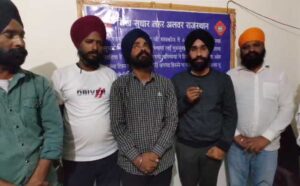
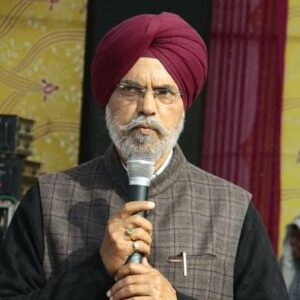 Paramjit Singh Randhawa was appointed as the first chairman of the Guru Nanak Dev Sikh Welfare Board established by the Congress state government barely a few months prior to the polls. There are Sikh leaders within the BJP too at pretty good positions but they have been sidelined during the elections.
Paramjit Singh Randhawa was appointed as the first chairman of the Guru Nanak Dev Sikh Welfare Board established by the Congress state government barely a few months prior to the polls. There are Sikh leaders within the BJP too at pretty good positions but they have been sidelined during the elections.
It must be emphasized that Rajasthan’s political tapestry shows a stark lack of Sikh representation, despite a sizeable population and overwhelming presence in some constituencies, that could influence electoral outcomes.
